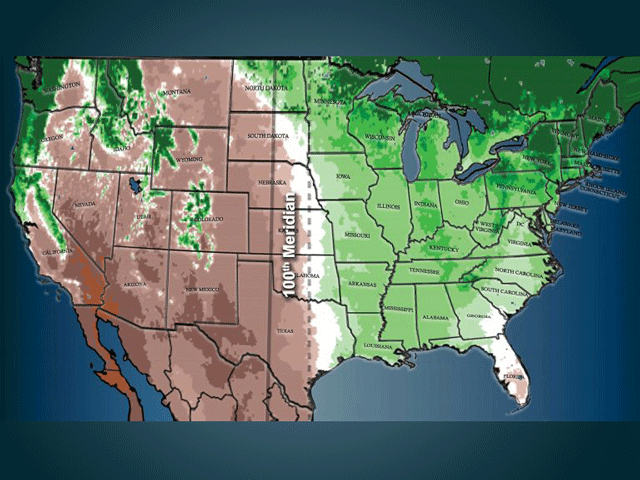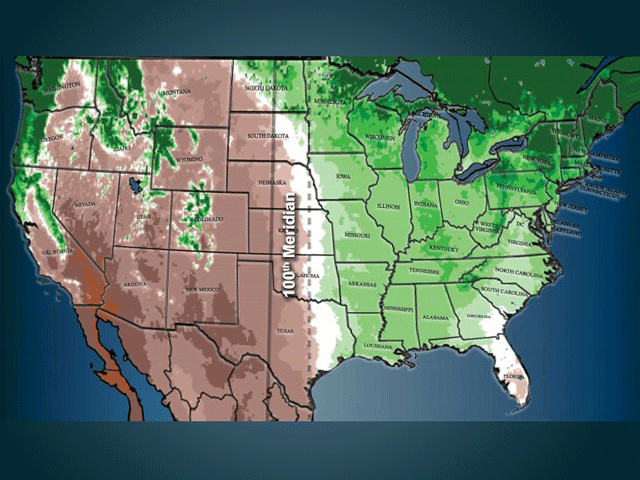Ag Policy Blog
Climate Impacts on Corn and Soybean Yields by Mid-2030s
A new USDA Economic Research Service report looking at the impact of climate change on corn and soybeans projects corn yields could continue to rise by 2036 while soybean yields fall in major sections of Midwest and eastern U.S.
The report cites corn yields could increase 3.1% by 2036, compared to 2016 while soybean yields would fall 3%, based on climate projections.
The models look at the increased frequency of extreme heat and declines in precipitation in counties east of the 100th meridian, a line that cuts up western Texas, the Oklahoma panhandle, and western Kansas, Nebraska, South Dakota and North Dakota. The report did not look at climate impacts west of the 100th meridian line.
The USDA report notes the impacts of climate change vary by U.S. counties. Increased temperatures also will likely reach extreme levels that could hinder crop growth during the growing season. Declines in precipitation also will vary, but decline during the growing season as well.
P[L1] D[0x0] M[300x250] OOP[F] ADUNIT[] T[]
States will be impacted differently. Plains states could see more declines in production while eastern states see more growth.
-North and South Dakota, Kansas, and Nebraska experience sharp declines in crop yields of 14.5% for corn and 7.1% for soybeans.
-Midwestern States such as Illinois, Missouri, Iowa, and Wisconsin experience crop yield gains of 1.2% for soybeans and 5.7% for corn.
-Indiana, Kentucky, and Tennessee experience yield gains for corn of 5.4% and yield declines for soybeans of 5.8%.
The report also suggests some mild impacts on exports due to changes in crop production.
The full report can be viewed at https://www.ers.usda.gov/…
Chris Clayton can be reached at Chris.Clayton@dtn.com
Follow him on X, formerly known as Twitter, @ChrisClaytonDTN
(c) Copyright 2023 DTN, LLC. All rights reserved.





Comments
To comment, please Log In or Join our Community .